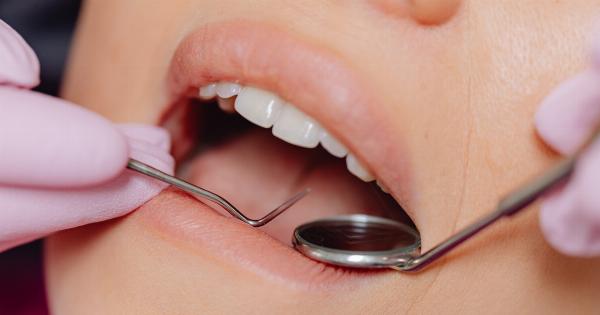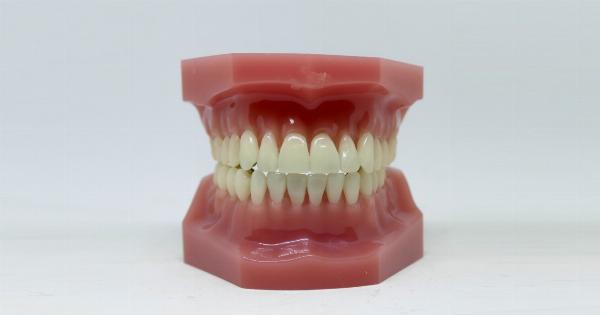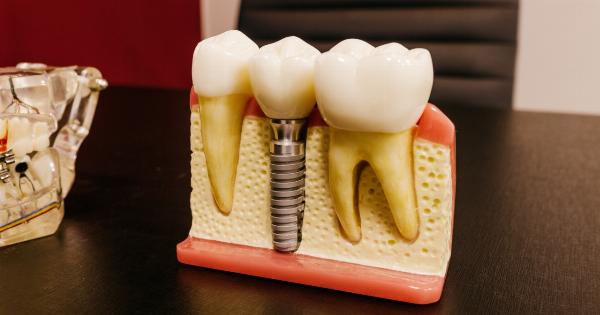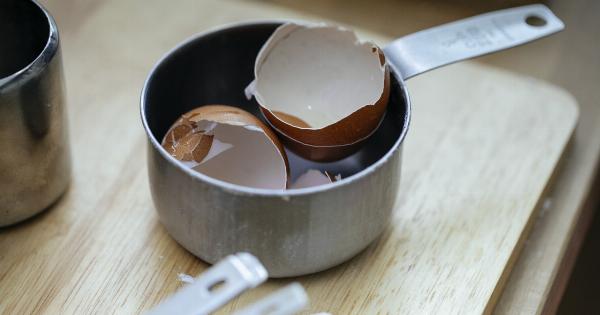Sensitive teeth can make daily activities such as eating, drinking, and brushing uncomfortable. The condition is often caused by worn enamel or exposed tooth roots, and it affects millions of people worldwide.
However, there are several ways to combat the discomfort and protect your teeth. This article discusses some of the causes of tooth sensitivity and offers tips on how to manage it.
What Causes Tooth Sensitivity?
Tooth sensitivity occurs when the dentin layer of teeth becomes exposed, which usually happens due to receding gums or enamel erosion.
The dentin contains tiny tubules filled with nerve endings that connect to the pulp, which is where the tooth’s nerves and blood vessels are located. When the dentin is exposed, external stimuli such as cold or hot foods and drinks, acidic or sweet substances, or even cold air can stimulate these nerve fibers, leading to pain and discomfort.
Some of the common causes of tooth sensitivity include:.
1. Brushing Too Hard
Brushing your teeth with excessive force or using a hard-bristled brush can wear down the enamel and cause gum recession, leading to tooth sensitivity. It’s best to use a soft-bristled brush and apply gentle pressure when brushing.
2. Gum Disease
Untreated gum disease can cause inflammation and gum recession, leading to tooth sensitivity.
3. Tooth Decay or Cavities
If tooth decay or a cavity has reached the dentin, it can cause sensitivity.
4. Clenching or Grinding Teeth
Grinding or clenching your teeth can wear down the enamel, exposing the dentin and leading to sensitivity.
5. Whitening Products
The bleaching agents in some teeth whitening products can cause sensitivity in some people. If you experience sensitivity after using a particular product, stop using it or talk to your dentist about alternatives.
How to Manage Tooth Sensitivity
If you’re experiencing tooth sensitivity, there are several things you can do to manage it:.
1. Use a Desensitizing Toothpaste
There are several desensitizing toothpastes available over-the-counter that can help reduce tooth sensitivity. These toothpastes work by blocking the tubules in the dentin, preventing exposure to external stimuli.
Use the toothpaste regularly as directed for best results.
2. Reduce Acidic Foods and Drinks
Consuming acidic foods and drinks such as citrus fruits, tomato sauce, vinegar, and carbonated drinks can erode the enamel and worsen sensitivity. Limit your intake of these substances and rinse your mouth with water afterward.
3. Avoid Teeth Grinding
Wear a mouthguard at night if you grind or clench your teeth. Discuss with your dentist if a TMJ (temporomandibular joint) appliance would be appropriate for you.
4. Brush and Floss Properly
Use a soft-bristled brush and apply gentle pressure when brushing. Flossing properly is also important. If you’re not sure how to floss correctly, ask your dentist for a demonstration.
5. Get Regular Dental Check-Ups
Regular visits to your dentist can help catch and treat dental problems before they worsen and cause sensitivity.
Final Thoughts
Tooth sensitivity can be a painful and frustrating condition, but there are several steps you can take to manage it.
Practice good oral hygiene, use appropriate sensitivity toothpaste, avoid foods that may aggravate sensitivity, and see your dentist regularly. By taking proactive steps to care for your teeth and gums, you may be able to reduce the severity and frequency of tooth sensitivity.



























